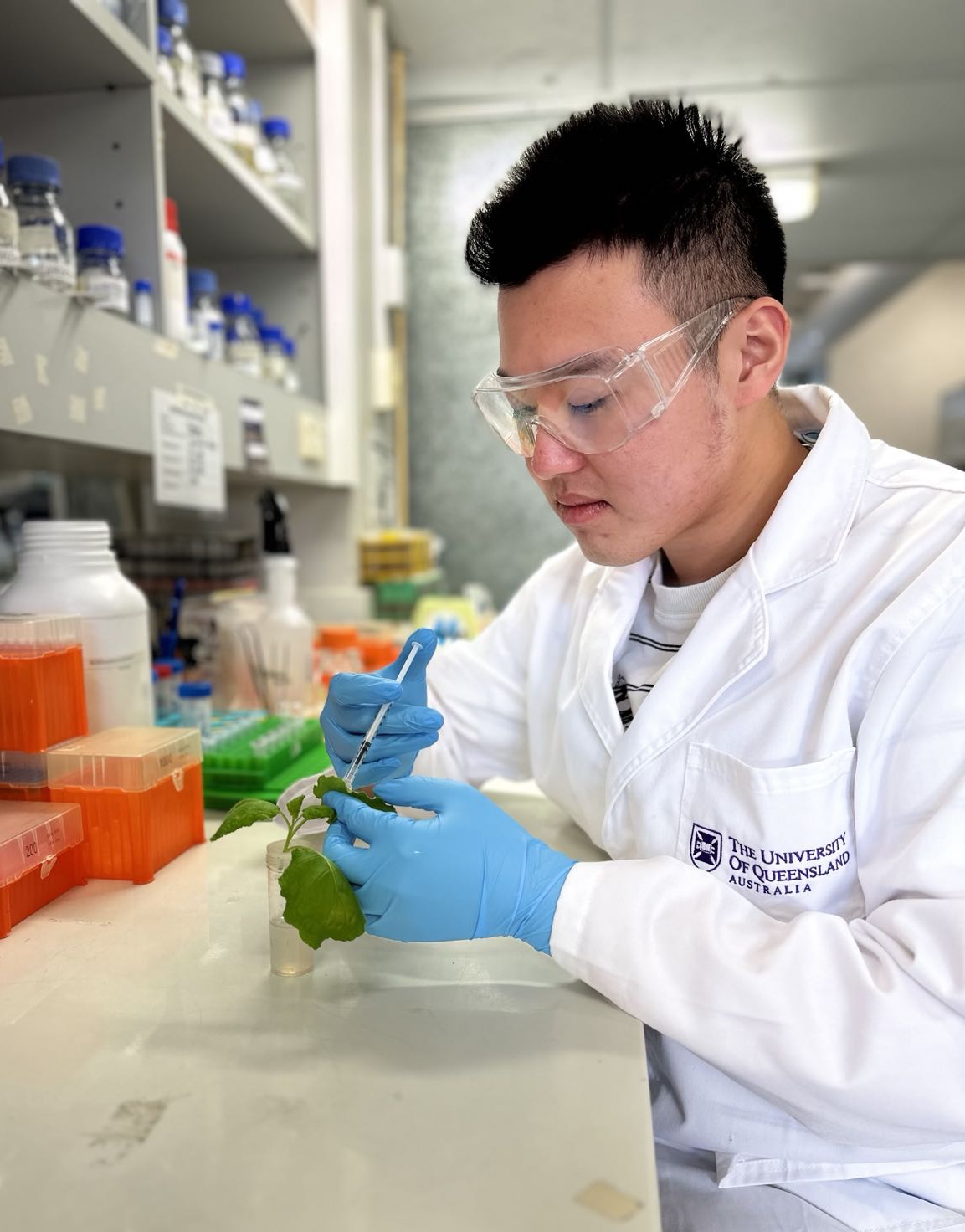
University of Queensland PhD candidate Tommy Gong has secured a prestigious $10,000 Bayer research grant to help develop virus-based technologies to precisely modify plant genomes.
The research could one day help develop more nutritious, tastier and disease-resistant food, that uses fewer resources and pesticides.
“Most people have heard of the genome-editing technology CRISPR, which is incredibly effective at editing genes, but is actually quite difficult and costly to deliver – especially in plants,” Mr Gong said.
“In this research, we are hoping to develop viruses into delivery vehicles for genome editing technologies.”
“These viruses would spread in plants bringing the genome editing tools with them.”
“Eventually, when the viruses infect cells that later form seeds, we hope this technology can produce gene-edited, non-GMO seeds.”
Mr Gong said similar techniques had been considered previously, but certain technical roadblocks still had to be overcome.
“The most popular CRISPR genome editing system involve a protein called Cas9, which acts as a molecular scalpel, precisely slicing at a targeted DNA sequence,” Mr Gong said.
“But the problem is that Cas9 is too way large to fit into many plant RNA viruses.
“Therefore, our vision is set on novel CRISPR systems that were discovered in smaller microorganisms which need to conserve space in its genome.
“These CRISPR systems are known for their extremely small size, which may allow them to fit into plant viruses.
“But before all that, we’ll need to try them out in plants first and then move them into viruses.”
The researcher said the support of Bayer was invaluable and was vital in driving this critically important research.
“The Grants4Ag initiative from Bayer has really opened the door to significant innovation in this space,” Mr Gong said.
“The program is targeted at innovative, early-stage research projects to resolve hot issues in agriculture – just like this one.
“I’m sure I’ll learn more in our collaboration with Bayer scientists, and I am very much excited to delve into this project.
“And UQ has also been incredibly supportive of this work – it’s great to know that I have a research-intensive university helping connect me with these opportunities.
“Hopefully we’re on the cusp of a gene editing revolution, which will mean better food security, higher nutrition and a cleaner, greener agricultural system.”
Mr Gong would like to thank his supervisor, Professor Jimmy Botella, for his support in the application process and my co-supervisor, Dr Karen Massel for her encouragements.
Bayer Crop Science provides opportunities for researchers to secure future grants via their partner Halo. Current opportunities can be found here.
Media: Faculty of Science Media, science.media@uq.edu.au, +61 (0)438 162 687.



